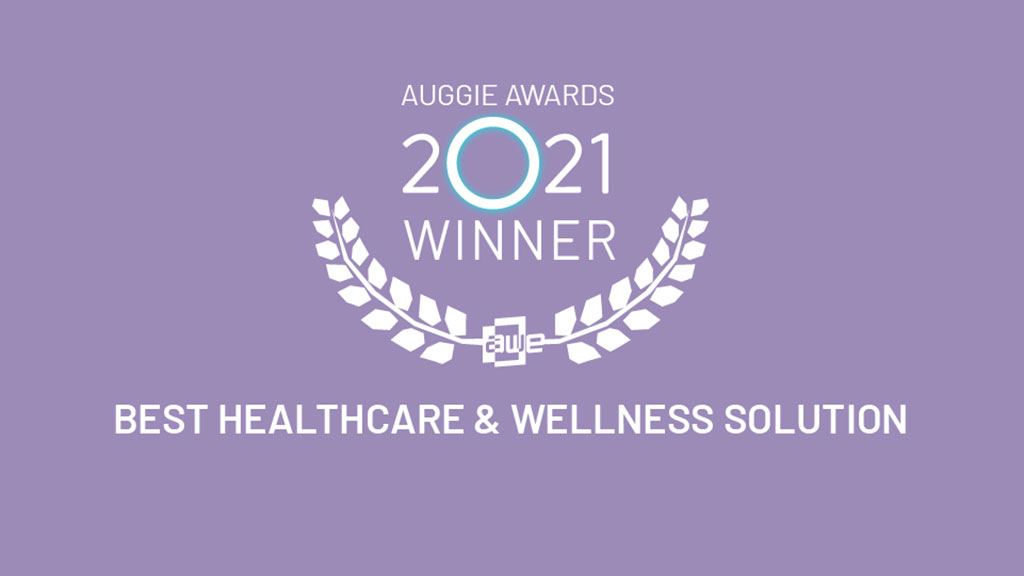UOC spin-off Immersium Studio one of the winners of world's leading VR industry awards with training course on ICUs and COVID-19 for healthcare workers
The tool is available in 23 languages and has been used to train more than 20,000 healthcare professionals in EuropeLearners retain four times more content using virtual reality
In 2019 the UOC spin-off garnered one of the most prestigious awards in the virtual reality and education world

UOC spin-off Immersium Studio, which works in the field of augmented and virtual reality, has won the 2021 Auggie Award for the Best Healthcare and Wellness Solution. The Auggie Awards are the world’s leading AR & VR industry awards. Immersium Studio received the award for the virtual reality learning experience it developed to train healthcare professionals to work in intensive care units (ICUs) during the COVID-19 pandemic. The project has helped to train over 20,000 healthcare workers in Europe, so they can work in intensive care units if needed due to the COVID-19 pandemic.
The CEO of Immersium Studio, Luis Villarejo, explained how the project began in July 2020, at the height of the pandemic, when the team was asked to form part of a training programme for healthcare professionals lacking experience of working in ICUs. The aim of the project was to "provide training for healthcare workers to give them the skills and confidence to assist in intensive care units in the event of an emergency". The project went ahead with approval from the European Commission and the spin-off was commissioned to develop a virtual reality experience designed to complement a wider training programme. "This is how we always work, complementing rather than replacing full training programmes. We develop complementary experiences for training situations where this technology can add value," explained Villarejo.
Training to work in ICUs with teaching provided by experts
The programme for ICUs was developed in three months. There are three parts to the virtual reality experience. Users can explore an ICU and access explanations on the materials and equipment found in European hospitals. On entering, trainees find themselves right inside the ICU surrounded by equipment, from ventilators to intubation devices. The user can click on each item to open a video featuring experts on the subject giving helpful explanations on how they work. Finally, two case studies are presented: a patient with severe COVID-19, and another with less severe symptoms. "Users participate as members of the ICU team and have to make decisions. They are not passive spectators, they are part of the action and the learning journey moves from point to point depending on the decisions they make," said Villarejo.
Learning from mistakes
One of the pluses of the Immersion Studio project is that, unlike other VR companies, it uses 360 degree video rather than making it look like a video game. This makes the experience really realistic, with an "extremely strong teaching impact". Villarejo noted that this training method allows learners to retain up to four times more content than any traditional format, and he highlighted the value of the active learning aspect of the project, i.e. that the user is not a passive spectator. "You can make mistakes, and learn from them. After this experience, you feel more confident when faced with the same situation in real life. You have the feeling you have already been there and it will come back to you more easily," he said.
The Immersium Studio VR experience for healthcare professionals is available in the 23 official languages of the EU. Users can access the programme from their own homes using a mobile app and inexpensive cardboard goggles. The European Commission is currently in talks with the World Health Organization to extend this experience beyond Europe.
About Immersium Studio
This latest award is not Immersium Studio's first; in 2019, it won an Immersive Learning Research Network (iLRN) award for the best extended reality app.
This spin-off receives funding from Invergy, a UOC company, to invest in projects from the educational and ICT sector linked to its ecosystem and spheres of knowledge. It is also supported by the UOC –through the entrepreneurship platform Hubbik– and has been funded by ENISA, a public company attached to the Ministry of Industry, Trade and Tourism, devoted to funding viable and innovative business projects of SMEs through loans.
This project promotes Sustainable Development Goals (SDG) 3, Good Health and Well-being and 4, Quality Education.
UOC R&I
The UOC's research and innovation (R&I) is helping overcome pressing challenges faced by global societies in the 21st century, by studying interactions between technology and human & social sciences with a specific focus on the network society, e-learning and e-health.
Over 500 researchers and 51 research groups work among the University's seven faculties and two research centres: the Internet Interdisciplinary Institute (IN3) and the eHealth Center (eHC).
The University also cultivates online learning innovations at its eLearn Center (eLC), as well as UOC community entrepreneurship and knowledge transfer via the Hubbik platform.
The United Nations' 2030 Agenda for Sustainable Development and open knowledge serve as strategic pillars for the UOC's teaching, research and innovation. More information: research.uoc.edu #UOC25years
Experts UOC
Press contact
-
Editorial department
